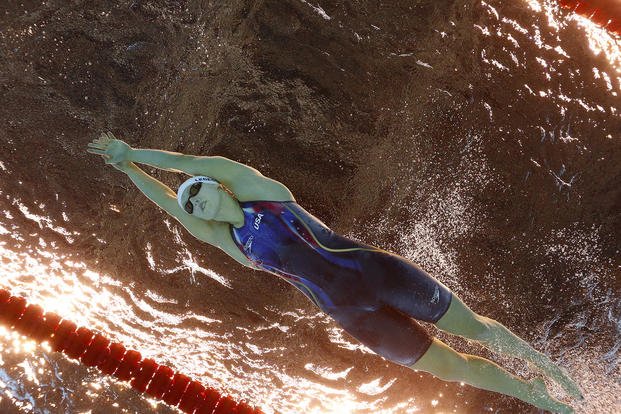Every four years, we have an opportunity to put our worldly differences aside and realize the people of the world are actually more similar than we are different.
The Olympics teaches us things about the human spirit. Some of those lessons include:
1. Humility: You may think you are a fast swimmer or runner. During the Olympics, you quickly realize that you may dominate in the local pool, but if you were swimming against Katie Ledecky, you would get lapped in a 100-meter swim. Or if you are running 400 meters, learning that your time is the same as an Olympic 800-meter athlete is very humbling. Bill Murray recently said that the average Joe should be placed in each event in order to provide a reference to just how remarkable these athletic achievements have become.
2. Perseverance: What happens if you are an athlete in a war-torn country? For the first time ever, refugees created their own team from countries like Syria, Sudan, the Congo and others facing political strife or war. Becoming an Olympic-caliber athlete was not the toughest thing these people have overcome in their lives. Living in a refugee camp in Kenya or crossing the Mediterranean Sea in a raft were just a couple of things these athletes were willing to do to escape wars in their homelands. Organizing themselves into a team took persistence and a never-quit attitude.
3. Never too old: Did you know there are athletes between ages 50-70 at the Rio Olympics? Then there is Kristin Armstrong , a 42-year-old American cyclist who won a gold medal in her third Olympics in the time trial event. Also, Oksana Chusovitina -- a gymnast from Uzbekistan -- competed in her seventh Olympics at the age of 41 and placed fourth in the vault.
4. Passionate determination: If you have a passion, but no coach, equipment, or track team -- no worries. Build your own and watch YouTube.com to learn how to perfect your craft of javelin throwing, as Julius Yego of Kenya did. Yego became a world champion and the first Kenyan to qualify for the Olympics in a field event in track.
5. The greatest of all time: You cannot talk about the Rio 2016 Olympics and not mention Michael Phelps, who now sports 28 medals throughout his Olympic career. Qualifying for his first Olympics at 15 years old, we watched him grow into a young champion, fight the demons that often follow youthful celebrity and rise up after hitting rock bottom. Seeing him evolve into a happy, fulfilled father of a newborn boy shows us all that life is tough, but in the end, it is all about family and those close to you.
6. New champion confidence: Having self-confidence in your abilities and the qualities that make us unique is a skill we all can use. Our self-worth is one of the things that helps us move to the next level in whatever we do in life. Take Simone Biles, who won the all-around gold in women's gymnastics. When Biles was asked whether she was the next Michael Phelps of gymnastics, she smiled and said, "No, I am the first Simone Biles." That is confidence, not arrogance. You do not become the best at something without confidence.
7. Finding your way again: Sometimes life has a way of hitting you hard below the belt, and you can lose your way for a few years -- maybe even decades. Swimmer Anthony Ervin won gold as a teenager in the Sydney 2000 Olympics. He spent his 20s and half of his 30s with no direction, gave up swimming and travelled the world, earning just enough money from odd jobs to live on. Then he made the Olympic team again in 2012 and 2016, claiming gold again in the 50 meters this week -- 16 years after his first Olympic race.
8. Security: No matter why you choose to travel, you should have a solid grasp of where you are going and places you should avoid. Gathering as much intel about your destination and the area surrounding it is just the basics. That the world is a different place after Sept. 11, 2001, is something you should never forget.
There is a reason why, over the past 15 years, Olympic committees have a security budget of a small Army. As much as we should celebrate our similarities during the Olympics, forgetting that there are people in the world who want to kill you because of your religion or nationality is careless. Keep your head on a swivel and have an emergency plan, no matter where you are.
Stew Smith is a former Navy SEAL and fitness author certified as a Strength and Conditioning Specialist (CSCS) with the National Strength and Conditioning Association. Visit his Fitness eBook store if you're looking to start a workout program to create a healthy lifestyle. Send your fitness questions to stew@stewsmith.com.
Want to Learn More About Military Life?
Whether you're thinking of joining the military, looking for fitness and basic training tips, or keeping up with military life and benefits, Military.com has you covered. Subscribe to Military.com to have military news, updates and resources delivered directly to your inbox.




















